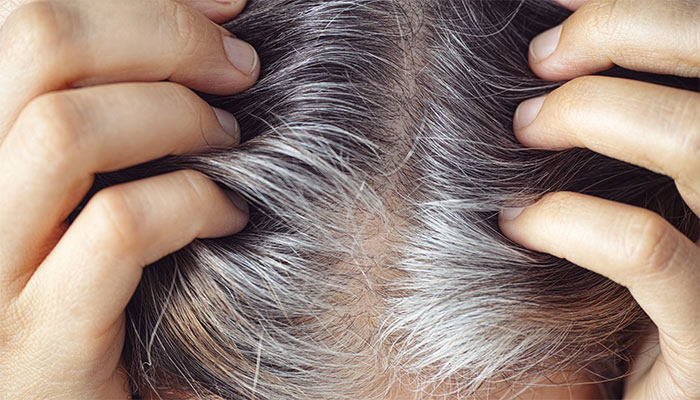White Hair May Protect Against Cancer, Reveals Japanese Study
The research focused on melanocyte stem cells, which are responsible for producing pigment in hair.
ISLAMABAD: While premature greying of hair is often seen as an unwanted sign of aging, new research suggests that white hair might actually serve a surprising protective function.
A study conducted by researchers at the University of Tokyo has found that the greying of hair could be linked to the body’s natural defense against cancer. According to the scientists, stem cells in the skin may choose between two responses to DNA damage — either turning hair grey or triggering the development of skin cancer, depending on the extent and type of the damage.
The research focused on melanocyte stem cells, which are responsible for producing pigment in hair. These cells are found at the base of hair follicles and can either exit the hair system — resulting in grey hair — or continue dividing, which, in some cases, can lead to tumor formation.
Read more: Health Experts Warn of Rising Viral Infections as Winter Approaches
Throughout life, cells are exposed to various internal and external stressors that can damage DNA, a process linked to both aging and cancer development.
The researchers explained that as we age, the number of melanocyte stem cells naturally declines, leading to grey hair. However, in some cases, these cells persist and begin to behave abnormally, increasing the risk of melanoma — a deadly form of skin cancer.
In the study, scientists experimented on mice and subjected them to genomic stress and carcinogens such as ultraviolet B (UVB) radiation and a chemical called DMBA. When exposed to DNA injury, the mice’s melanocyte stem cells triggered a protective mechanism that caused the cells to self-destruct, resulting in grey hair — a process believed to help prevent the development of cancer.
However, when exposed to UVB or DMBA, the cells did not die off. Instead, they began dividing, increasing the likelihood of tumor formation.
Researchers emphasized that not every instance of greying hair equates to cancer prevention. Still, this process may represent a natural safeguard where the body eliminates potentially harmful cells. When certain environmental factors interfere with this mechanism, the risk of skin cancer rises.
The team hopes that their findings could pave the way for new therapies that leverage the body’s own protective strategies to fight cancer.




Comments are closed, but trackbacks and pingbacks are open.